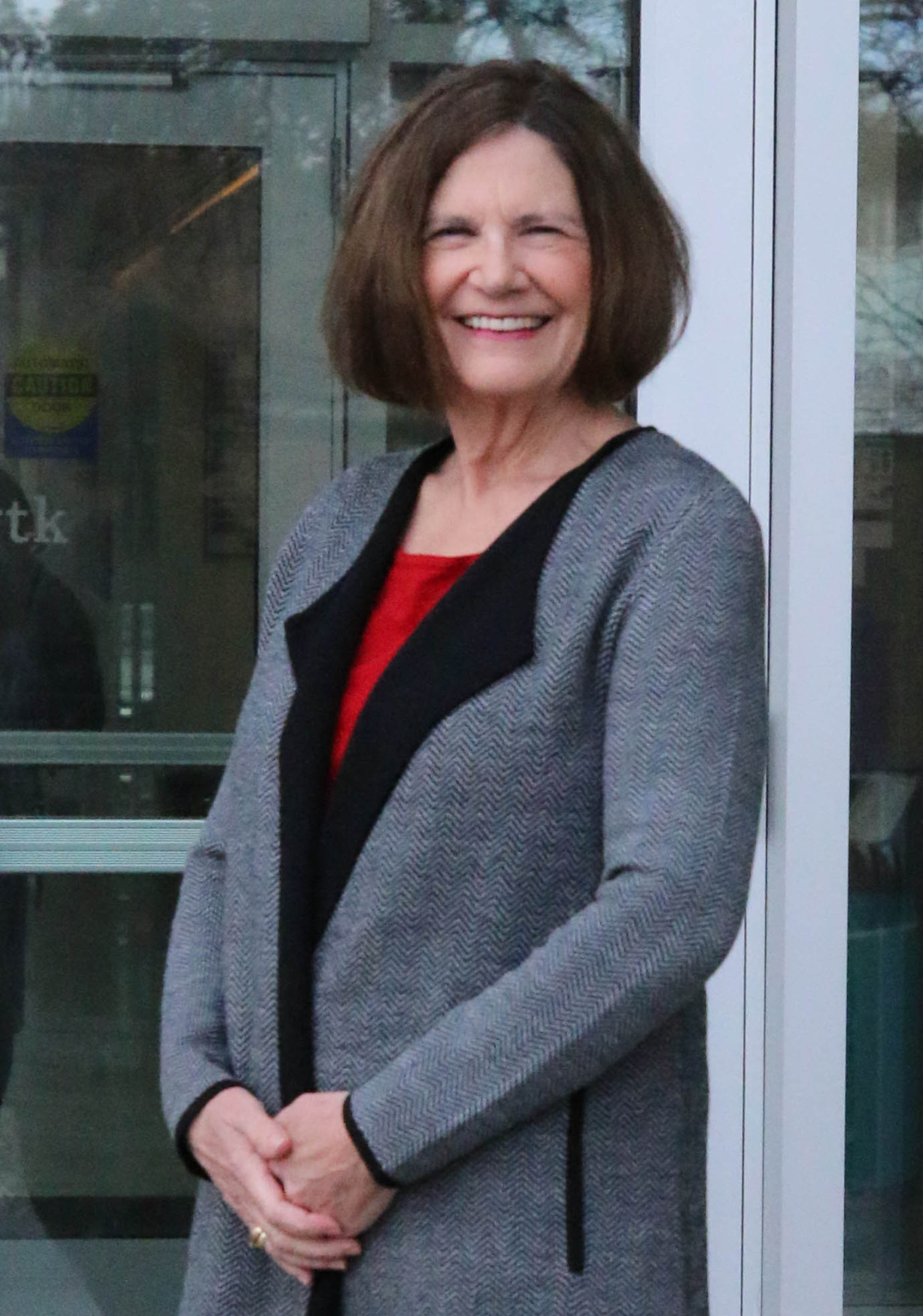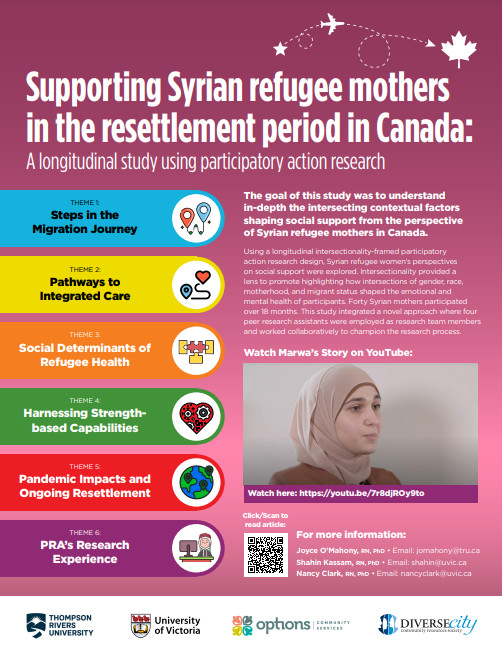
Syrian refugee mothers need support, says researcher – TRU Newsroom
As a community researcher, Dr. Joyce O’Mahony helps to advance community goals and science.
For her multi-year study, which explores how Syrian refugee mothers access social supports and interact with health care in promoting well-being, O’Mahony’s role in building, convening and collaborating with community members was key.
“Our aim was to follow refugee women’s emotional well-being over time in resettlement,” says O’Mahony. “Most studies examine or explore resettlement in early experiences of refugee resettlement; the aim in this project was to understand factors that support Syrian mothers’ resettlement over time and describe specific intersecting factors.”
To recruit participants for the study, O’Mahony, a faculty member in the School of Nursing, and her colleagues Dr. Nancy Clark and Dr. Shahin Kassam from the University of Victoria, worked with community settlement agencies and interested stakeholders. A community advisory board was formed with Syrian mothers, settlement workers, health-care professionals, researchers and non-government organizations.
“We could not have done it without our community partners,” says O’Mahony. “Because of them, we started to build trust with the participants in a good way.”
Peer research assistants

One of the infographics created for Joyce O’Mahoney’s research.
Through the agencies, the researchers were able to find peer research assistants (PRAs) who were invaluable to the study. O’Mahony says this novel approach allowed PRAs, who were also participants, to take on diverse roles within community-based studies and be compensated with lived experience for their input of time, skills and expertise.
“PRAs can take on leadership roles and become important resources in their communities to give back to the broader community,” she adds.
The study’s PRAs received training as lead interviewers, working alongside a research team member. They also helped recruit other Syrian participants and assisted with translation, interpretation and clear communication.
“The participants were provided diaries to write about how they were managing and feeling,” says O’Mahony. “Originally planned, a peer researcher would connect with each participant in person, but we had to modify that due to the pandemic and the need to be socially distanced. Instead, we phoned and emailed them. So, that’s how we communicated over time.”
Deeper understanding
O’Mahony says that conducting a longitudinal study, as they did for this research, allowed the team to examine change over time.
“We used qualitative methods to explore and understand the refugee participant’s experiences as a whole — migration to a new country is a significant transition. It is important to have a narrative and some understanding of the background social context and journey steps of these refugees who are participants.”
The research team is in phase three (knowledge mobilization of findings) of the study, where research knowledge is shared with decision-makers to amplify research impact. Research initiatives include journal articles, an infographic and a video shared with multiple audiences, including Syrian families and the professional organizations — not-for-profit and settlement agencies — who work with them.
“We created infographics as an arts-based approach to achieve broader social justice outcomes through policy change,” says O’Mahony. “It is our hope to make a difference and trigger policy change. The detailed infographics address the goal of the study and its six findings, including the women’s continued need for support after resettlement.
“Issues raised by Syrian mothers, combined with the supportive network of other community members and the research team, increased the likelihood of a stronger collective voice to provide more awareness, appropriate emotional support and access to community social support services.”
Looking ahead
O’Mahony says that ultimately this research provides an important contribution to knowledge and is essential in promoting equitable supports for Syrian refugee mothers. She adds that resettlement timing and understanding of social and political context is necessary to offer appropriate services closely aligned with policy and practice.
“Awareness is key, and we must persevere. We will continue to develop knowledge in working with communities, intersectoral partnering and working within the intersections of gender, culture, race and migrant status. Creating caring practices as outreach support facilitates trust and deepens assistance for refugee families.”
